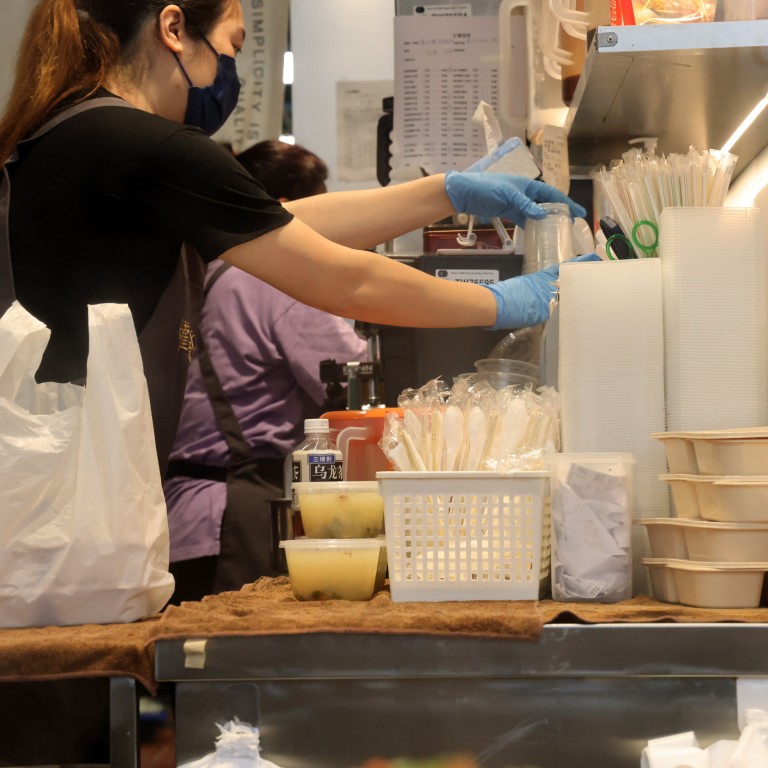
Letters | Embrace Hong Kong’s plastic ban – for the sake of your own health
- Readers discuss why the city must break its addiction to plastic, and the focus on the cost of the bags to be used in the waste-charging scheme
“The Fraud of Plastic Recycling”, a report by The Centre for Climate Integrity, recently revealed that, for decades, the petrochemical industry has been treating the plastic waste crisis as a public relations issue, instead of a technical or economic challenge. The report accused the industry of promoting plastic recycling as a way to ward off regulations and keep demand growing. Even as countries are negotiating a global treaty on plastic pollution, industry lobbyists are pushing for new solutions like chemical recycling without addressing the core issue – the disposability of single-use plastics.
The reality is that only 9 per cent of all plastic waste generated has been recycled, and our plastic addiction is causing irrevocable change to the environment. For instance, plastic rock complexes – or “plastistones” – have been found across several countries and are being recognised as a novel sedimentary rock by geologists.
Even more worrying is that microplastics and nanoplastics can now be found in our blood, and a study on mice showed that they can penetrate the blood-brain barrier. A recently published study saw a link between their presence in our major arteries and the increased risk of heart attack, stroke or death.
As more jurisdictions embrace the growing global movement towards banning plastics, Hong Kong too must heed the call to protect our environment and ourselves. We already have disposable items made of more sustainable materials, such as paper or wood, available today. Of course, the better option is to stop using disposable items in the first place.
Wendell Chan, senior officer, policy research and advocacy, Friends of the Earth (HK)
Focus on cost of waste-disposal bags misses the point
Ultimately, Hong Kong needs to find a more holistic way of dealing with waste, like applying circular economy principles which involve stakeholders along the value chain. Bags alone will not solve the problem. Waste charging has been successfully applied across the globe in other countries, let’s hope we don’t make fools of ourselves this month.
Thomas Tang, Mid-Levels

